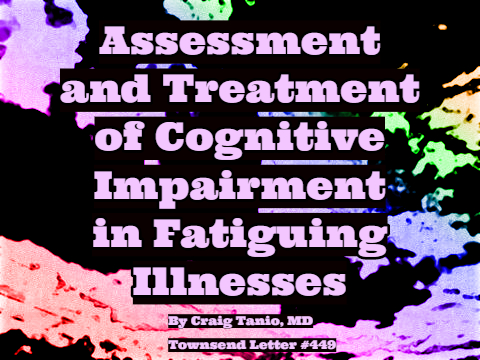…article continued:
Using Lifestyle Modifications to Lessen the Impacts of Chronic Stress
In this section, I will review numerous lifestyle modifications that can be recommended to patients suffering from the deleterious effects of chronic stress. All of these lifestyle modifications do not have to be done in their entirety to improve enduring problems associated with AL and AO, but certainly several of them can become part of a comprehensive plan aimed at lessening the biological and psychological impacts resulting from chronic stress. This won’t be an exhaustive review but will instead highlight salient research linking lifestyle modifications with reduced stress, increased psychological and physical health, and when possible, implicated brain mechanisms.
Diet. There should be no dispute about the enduring and negative health impacts from nutrient-poor and carbohydrate-rich diets, which are notably high in energy density, contain too much sugar and saturated fat, are low in fiber, and are abundantly processed. This type of diet has contributed to the exponential rise in obesity and associated metabolic diseases like type 2 diabetes mellitus and non-alcoholic fatty liver disease.83,84 Type 2 diabetes mellitus is also associated with psychiatric illnesses, such as depression, since they both likely have the same underlying inflammatory pathophysiology.83 A high-fat diet has been associated with anxiety and anhedonic behaviors due to cascading effects that adversely impact synaptic plasticity and insulin signaling/glucose homeostasis, which result in increased cortisol levels and inflammatory cytokines.85 Unhealthy eating in an adult population was shown to be associated with an increased prevalence of anxiety, depression, and stress.86 In that same study, the data showed that an excessive intake of sweets and low consumption of dairy products was particularly associated with a higher prevalence of psychological and sleep disturbances.86
Based on what has been noted, it is rather obvious as to what constitutes a healthier diet. Recommending well-balanced meals that are rich in fruits, vegetables, and fiber, with adequate protein, healthy fats, low levels of sugar and carbohydrates (i.e., limiting foods with a high glycemic index), and lower amounts of food (i.e., meaning calories), is something that should be advocated to all patients.85 In terms of a specific dietary approach, a clinical trial used a modified Mediterranean diet to treat patients with major depressive disorder (MDD), and the results showed remission among 32% of the treated patients and an impressive number needed to treat of 4.1.87 A less rigorous evaluation showed that an increased consumption of plant foods consistent with a Mediterranean diet were positively associated with physical function and general health, and with reductions in trait anxiety, depression, and perceived stress.88
Even though there isn’t just one dietary approach that would ideally help all patients with chronic stress, recommending a dietary approach that is similar to a Mediterranean diet seems to be the best one to approximate. Of course, compliance will always remain an issue, but it possesses broad health benefits that appear to additionally improve mental health symptoms. With respect to brain changes, adopting a Mediterranean diet has not specifically been linked to changes in brain morphology though in one cited study positive effects were observed in plasma BDNF levels among a subset of participants (i.e., it attenuated reductions in plasma BDNF levels).89 In a couple of systematic reviews and meta-analysis on adults, the Mediterranean diet was shown to improve a variety of cognitive parameters known as cognitive domain composites (i.e., global cognition, memory, and frontal cognitive domains),89 and cognitive functions (i.e., delayed recall, working memory and global cognition).90 Mechanistically, its benefits are likely attributed to anti-inflammatory, antioxidant, microbiome effects, the lowering of the glycemic load and advanced glycation endproducts, and increasing dietary fiber and specific micronutrients (e.g., omega-3 essential fatty acids and polyphenols).89
Exercise. Recommending regular exercise to all chronically stressed patients makes logical sense. It is certainly preferable that patients have some type of planned exercise each week to overcome the psychological and biological burdens associated with being sedentary and/or bored. There is published data demonstrating specific mental health benefits from exercise in being able to attenuate mental health symptoms, improve social connectedness and functionality, and augment personal empowerment. In a systematic review that evaluated the impact of regular exercise among people with severe mental illness, the results showed improvements that included mood, alertness, concentration, sleep patterns and even psychotic symptoms. Unsurprisingly, the data revealed that exercise contributed to improved quality of life “through social interaction, meaningful use of time, purposeful activity and empowerment” (p.48).91 A comprehensive literature review also showed that a broad range of exercise types was associated with different outcomes, such as reduced mental health symptoms, improved functionality, and/or better concentration.92
The biological factors associated with the improvements from regular exercise include increased levels of monoamine neurotransmitters, beta-endorphins, opioids, endocannabinoids, neurotrophic factors, and even specific (yet helpful) pro-inflammatory processes.92 Specifically, exercise induces the following neurochemical alterations: increased serotonin levels decrease anxiety; increased norepinephrine levels increase alertness; increased dopamine levels increase pleasure; and increased levels of opioids and endocannabinoids increase euphoria and decrease anxiety. Additionally, neurotrophic factors such as BDNF and insulin-like growth factor-1 increase from regular exercise, and contribute to its experienced and durable benefits over time. Exercise also causes pro-inflammatory processes associated with durable benefits related to neurogenesis, angiogenesis and synaptogenesis.
Another biological model that explains the benefits from exercise involve a hypothesized mechanism known as transient hypofrontality.92 When a person exercises, the ensuing blood flow and energetic resources are diverted from the brain to motor activities. In doing so, there would be a transient hypofrontality because the brain’s metabolic demands have been rightfully shifted. This has the net effect of attenuating psychiatric symptoms by temporarily deactivating involvement of the PFC (i.e., less hyperawareness, vigilance and attention), which then reduces the ensuing amygdala activation, resulting in less mental distress.
Psychologically, regular exercise can induce a variety of positive states of being that reduce symptoms of mental distress.92 Exercise can result in a state known as flow, which is related to focused concentration, being in the moment, and experiencing feelings of reward. Self-efficacy is another benefit from regular exercise, and relates to feeling a sense of accomplishment. Exercise also increases social interaction, which is known to assuage mental distress.
Different types of exercise have been studied (e.g., yoga, walking, weight-lifting, and running), and all of them produce benefits when they are done consistently, and for adequate durations of time (i.e., at least 90 minutes each week).92 Exercise that is of moderate to high-intensity has been shown to produce greater therapeutic effects at attenuating psychiatric symptoms.92
With respect to specific brain changes, it is known that the volumes of the hippocampus and medial temporal lobes are larger in adults with a high level of fitness, and that exercise increases hippocampal perfusion.93 In a randomized clinical trial, 6 months of regular aerobic exercise was shown to increase the size of the anterior hippocampus, resulting in spatial memory improvements.93 Specifically, exercise increased hippocampal volume by 2%, which reversed age-related loss in volume by 1-2 years. The increased hippocampal volume was also associated with increased serum levels of BDNF.
Nature. An obvious lifestyle treatment that enhances mental health is that of nature experiences, which “includes individuals’ perceptions and/or interactions with stimuli from the natural world (from potted plants and private gardens to more expansive public green spaces and wilderness, weather, and the movements of the sun) through a variety of sensory modalities (sight, hearing, taste, touch, and smell)” and that “can occur through conditions of ‘real’ (in situ) contact, window views, representations (e.g., landscape photographs), or simulations (e.g., virtual reality; p.2).”94 Evidence supports enhanced psychological well-being, positive affect, increased happiness, positive social interactions, improved sleep, increased meaning and purpose in life, and reductions in stress (i.e., as per self-reported improvements, and/or improvements in various physiological measurements and biomarkers of acute and chronic stress) when engaging in nature experiences.94 Other published data has shown improvements in working memory, cognitive flexibility, and attention control when being exposed to nature experiences.95 Being in nature also increases hedonic well-being (i.e., feeling good and experiencing a sense of satisfaction), and eudaimonic well-being (i.e., meaning, autonomy, vitality, and feelings of transcendence).96
Several hypotheses have been proposed to explain the benefits of nature experiences and include the biophilia hypothesis (that we have an innate drive to be in nature), the stress reduction hypothesis (that there is a resultant physiological response that reduces stress levels), and the attention restoration theory (that nature reloads cognitive resources and re-establishes the capacity to concentrate and pay attention).96
Even though no direct published research was cited about nature experiences and brain mechanisms, it seems likely that increasing these types of exposures would enhance the functional connectivity between the cortico-limbic systems. Nature experiences should therefore be capable of providing protection against chronic stress by preventing (or moderating) decoupling between the PFC, amygdala, and hippocampus.








